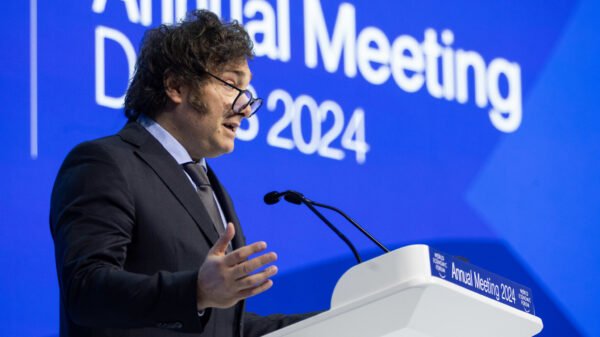Argentina Confronts Dengue Surge Amid Repellent Shortage Crisis
Argentina is currently facing a shortage of insect repellent as the country braces for what is anticipated to be its most severe dengue season on record.
Dengue, a mosquito-borne virus that can lead to severe illness or even death, poses a significant threat to public health. While a vaccine for dengue exists, its distribution is still in its early stages, leaving most people reliant on preventive measures to avoid infection.
Reports from residents indicate that acquiring repellent has become nearly impossible, with many supermarkets and pharmacies displaying signs indicating they are out of stock. In the few places where repellent is still available, particularly online, prices have skyrocketed due to resale practices.
The government has acknowledged the issue, attributing it to a “bottleneck” in the supply chain that they intend to resolve in the coming days. However, citizens, especially in Buenos Aires, remain anxious as hundreds of thousands of Argentines have already been infected.
The shortage of repellents began to be observed in March, with one company attributing it to a forecasting error and the lengthy manufacturing process required for the product.
Minister of Health Mario Russo characterized the situation as a “problem of supply and demand” in an interview with Radio Continental.
Dengue is most prevalent in tropical and subtropical regions, with symptoms including high fever, severe headaches, swollen glands, and rashes.
According to Argentina’s health ministry, the country has reported 163,419 cases of dengue fever in 2024 so far, with deaths recorded across all age groups, with the highest mortality rate among individuals over 80 years old.
The ministry has advised the public to use repellents to prevent mosquito bites and to seek medical attention if symptoms of dengue develop.
Dengue cases have surged in the Americas in the first three months of the year, with Brazil, Argentina, and Paraguay being the worst affected. PAHO officials have warned that this could be the most severe outbreak in the Americas to date, with these three countries accounting for 98% of all cases.








































Comment Template